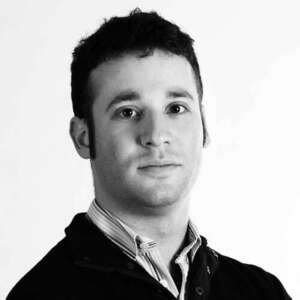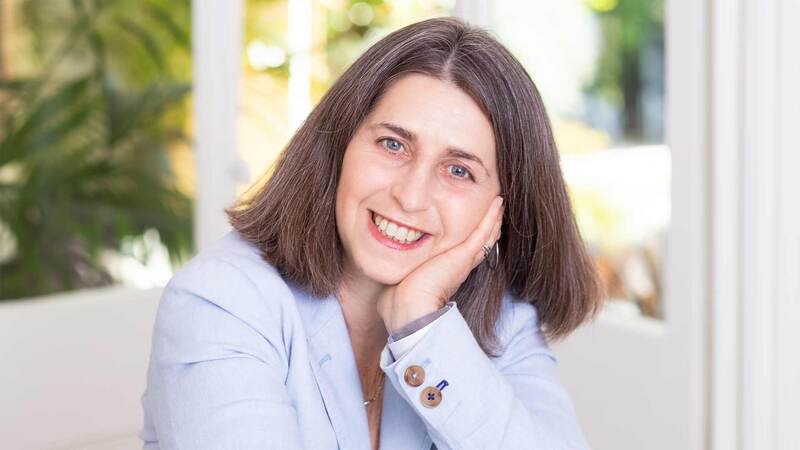You are viewing your 1 free article this month. Login to read more articles.
A natural part of life
There’s one date set in stone in my cultural calendar: the Bradford Literature Festival (which starts today). Even in this year’s ‘reduced form’ - a necessity of the pandemic - it features over 100 events and 200 speakers. Despite the circumstances, BLF remains one of Britain’s most impressive festivals - and the most inclusive.
There’s one date set in stone in my cultural calendar: the Bradford Literature Festival (which starts today). Even in this year’s ‘reduced form’ - a necessity of the pandemic - it features over 100 events and 200 speakers. Despite the circumstances, BLF remains one of Britain’s most impressive festivals - and the most inclusive. While other literary events do a superb job of committing to diversity, the Bradford Literature Festival has woven accessibility into every aspect of its being.
I use ‘accessibility’ deliberately. BLF is, unquestionably, the largest, most diverse literature festival in the country. That diversity takes place across every dimension: ethnicity and faith, class and finance. It also caters to all interests: comics and classics, poetry and politics. This is at the core of its mission - BLF exists to give everyone has access to books and to a space to discuss them. It not only achieves this mission, it does so triumphantly - having quickly become one of Britain’s largest cultural events and a key pillar of Northern culture.
How does this work? And, more importantly, what can other literary events (and institutions) learn from it?
It starts with the ticket. BLF’s Ethical Ticketing Policy is baked into the business plan. Rather than offering up a handful of free tickets, or holding a trophy ‘free community event’, BLF is designed around the assumption that the people who need it most are also those unlikely to, or unable to, spend money on the luxury of a literary festival. It is, as founder Syima Aslam has said, a festival for those “who might not normally attend book festivals”. As a result, 57% of attendees attend on free or discounted tickets, and even full-price tickets are kept affordable.
The programming also interprets ‘literature’ inclusively. In the years I’ve attended, I’ve seen panels on fatherhood, murder ballads, Brexit, vampires, and Islamophobia. I’ve witnessed passionate discussions of geology, local history, Government policies, and dystopian fiction. The programming is devised around engagement, not pedantry; topics chosen to be contemporary and relevant for attendees. Events have even been created specifically for - and sometimes even by - local schools. The focus is always on driving participation with literature and to show ‘how books are natural part of life’.
The speakers - and attendees - are incredibly diverse. While other festivals have struggled - often publicly - with the issue of finding speakers from traditionally under-represented groups, BLF, uniquely, seems to have avoided this problem. I can’t help but see this as interlinked with the programming. By freeing the idea of literature from its traditional (posh, white, male) boundaries, it seemingly becomes much easier to find fascinating, expert voices from all walks of life. The festival has embraced, from top to bottom, the incredible multicultural mix that is modern Britain. By normalising inclusivity, it again shows how literature is for everyone.
Good intent is meaningless if a festival is run poorly. But BLF runs smoothly every year, with a mixed staff of professionals and volunteers. Treating its guests well may seem like a slight thing, but this demonstrates that BLF is, in fact, a serious literary event and not simply a charity to be patronised. Panelists and moderators are paid, supported, and, in true Northern style, fed continuously. A long-standing partnership with the local (extremely beautiful) Waterstones means that not only is there an excellent festival bookshop, but that each individual event always has the books on display. (Anecdotally, I’ve sold more books at BLF than at any other festival or convention I’ve attended - including a few of my own launches.)
Finally, the festival is more than a single event, or even a series of events. Bradford Literature Festival continues throughout the year with a lower profile, but incredibly important, series of school events and community outreach programmes. These further extend the reach of the festival, connecting people with literature in more comfortable and familiar settings. These efforts also prove that the Festival is not simply merely something that happens in Bradford, but that BLF is woven into the city itself. BLF has recently extended to digital programming as well, with half of this year’s events made free online. Aslam has stated, however, that BLF will never become fully digital as many of its key audiences are in digital poverty.
In many ways, the easiest part of having a mission, or building a brand, is knowing what to say. Words come easily enough, especially to those in the publishing industry. The hardest part is underpinning those words with meaningful action: bridging the ‘say-do’ gap. Creating an inclusive festival is something that needs to happen from the ground up. This is not a matter of awkwardly bolting on an extra panel or a last-minute ticket giveaway, but in consciously designing every aspect of the festival to attract, engage, and retain broader audiences.
Access to literature and culture is not simply a moral mandate, but it is essential to the long-term survival of the publishing industry. We, as a sector, need to engage more people with books, more often. The rapid growth of the Bradford Literature Festival demonstrates that a festival built around accessibility can be a success. Other events have sprung up with inclusion at their core, but there’s still progress to be made. We need more of literature’s institutions - both new and old - to make a genuine effort to engage all audiences with, around, and for books.
Jared Shurin is a communications strategist, focusing on social and behaviour change challenges. He is an occasional editor; his latest is The Outcast Hours (with Mahvesh Murad, from Solaris).
















